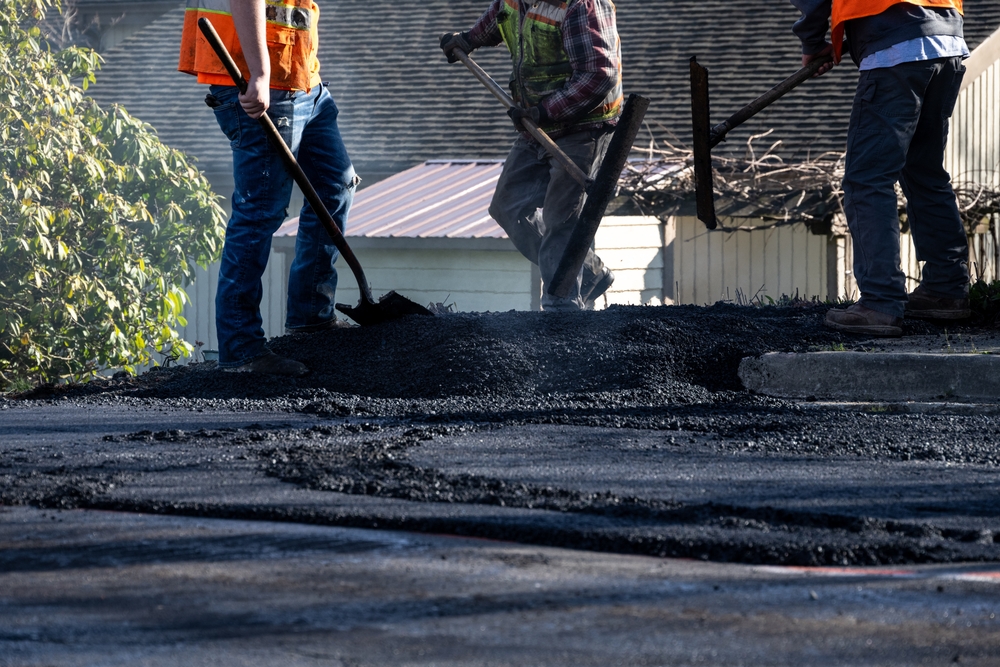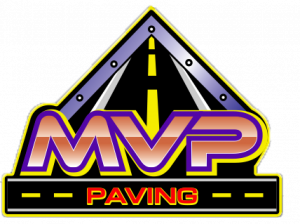
Residential vs. Commercial Asphalt Paving: Key Differences You Should Know
Asphalt paving is a widely preferred method for constructing durable and smooth surfaces for both residential and commercial properties. While it may seem that asphalt is asphalt—just a blacktop road, driveway, or parking lot—the truth is far more nuanced. There are significant distinctions between residential and commercial asphalt paving in terms of materials, design, installation processes, maintenance requirements, and associated costs. Understanding these differences is vital for property owners, contractors, and anyone planning a paving project, as each type has unique demands and considerations. Whether you’re aiming to improve a home’s curb appeal or ensure the functionality of a business’s parking lot, being informed can lead to better results and longer-lasting surfaces.
Purpose and Usage Demands
The primary differences between residential and commercial asphalt paving begin with their intended use. Residential paving typically covers driveways, small private roads, and walkways. These surfaces generally experience light, infrequent traffic, often limited to family vehicles, occasional visitors, and light delivery trucks. As a result, residential asphalt paving doesn’t require the same strength and load-bearing capabilities as its commercial counterpart.
Commercial asphalt paving, on the other hand, is designed to withstand significantly heavier loads and a higher volume of traffic. This includes everything from employee and customer vehicles to delivery trucks, service vehicles, and in some cases, heavy industrial equipment. Parking lots, loading docks, business entrances, and commercial access roads are constantly subjected to stress that residential paving never encounters. Consequently, the structural integrity of commercial paving must be more robust, with deeper foundations, reinforced sublayers, and thicker asphalt courses to accommodate this increased burden.
Material Composition and Thickness
A notable divergence between the two types of paving lies in the asphalt mix and its application thickness. For residential projects, a standard asphalt mix with a moderate binder content is often sufficient. The focus is usually on achieving a smooth finish and aesthetic appeal, especially since the area doesn’t endure harsh operational stresses. Residential driveways usually have a compacted base of 4 to 6 inches, with 2 to 3 inches of asphalt layered above. This composition is adequate to support regular household use and weather fluctuations.
Conversely, commercial paving projects utilize specialized asphalt mixtures designed for strength and durability. These mixes often include a higher percentage of stone and sand, providing improved structural support and wear resistance. Additionally, commercial paving incorporates several layers, including a sub-base, base course, and surface course, with total thickness ranging from 5 to 8 inches or more, depending on expected load levels. The enhanced material specification ensures that commercial surfaces do not rut, crack, or deteriorate prematurely under constant pressure.
Installation Process and Equipment
The installation process of asphalt paving also varies significantly between residential and commercial applications. Residential paving projects are typically straightforward and can be completed quickly—often within a single day for a standard driveway. Smaller machinery is used, and the crew size is relatively small. This simplified process minimizes disruption to the homeowner while still delivering a durable and attractive finish.
In contrast, commercial paving projects are more complex and time-intensive. They require meticulous planning, often involving civil engineers and surveyors to ensure compliance with zoning laws, drainage regulations, and accessibility standards such as those mandated by the Americans with Disabilities Act (ADA). Commercial jobs use larger, more sophisticated equipment to manage the extensive surface area and heavier material loads. Moreover, due to their scale, these projects might be executed in multiple phases and require traffic control measures, permitting, and coordination with local municipalities. Proper scheduling is critical to minimize disruptions to business operations, which adds another layer of complexity.
Maintenance Requirements and Longevity
Maintenance plays a critical role in the lifespan and performance of asphalt paving, and the needs differ substantially between residential and commercial settings. Residential asphalt, due to its lighter usage, requires relatively low maintenance. Homeowners are generally advised to sealcoat their driveways every 2 to 3 years to protect against UV damage, moisture intrusion, and oxidation. Minor cracks can be easily filled with consumer-grade sealants, and overall upkeep tends to be manageable without professional intervention.
Commercial asphalt surfaces, however, demand more rigorous and frequent maintenance. The constant stress from heavy vehicles, coupled with environmental factors, accelerates wear and tear. Sealcoating may need to be done annually or biannually, and crack filling must be performed promptly to prevent pothole formation and base degradation. In addition, commercial surfaces often include features like line striping, signage, and curbing, all of which need regular upkeep for safety and compliance. Many businesses implement maintenance contracts with professional paving companies to ensure the longevity and appearance of their asphalt investments. When well maintained, commercial asphalt paving can last up to 20-30 years, while residential surfaces may last slightly less, depending on climate and usage.
Cost Considerations and Aesthetic Goals
Finally, cost is a major factor that sets residential and commercial asphalt paving apart. Residential paving is generally more affordable, given the smaller area and simpler design. Homeowners may pay anywhere from a few thousand dollars for a standard driveway, depending on regional labor rates and site-specific conditions like grading or tree removal. Aesthetic considerations are also more prominent in residential projects, with homeowners often prioritizing smooth finishes, edge detailing, and curb appeal to boost property value.
Commercial paving projects are significantly more expensive due to their scale, complexity, and engineering requirements. Costs are influenced by the size of the lot, expected traffic load, material specifications, drainage and grading needs, regulatory compliance, and custom features such as signage, stormwater management systems, or lighting infrastructure. However, these costs are typically justified by the increased durability, safety, and functional value that a high-quality commercial asphalt surface provides. For businesses, a well-maintained parking lot or access road is not only a logistical necessity but also a reflection of the company’s professionalism and attention to customer experience.
Conclusion
While both residential and commercial asphalt paving serve the essential purpose of providing stable, weather-resistant surfaces, the similarities largely end there. From the scale of the project to the materials used, installation techniques, and maintenance strategies, each application has distinct requirements that must be carefully considered. Residential paving emphasizes aesthetic appeal and affordability with moderate structural needs, whereas commercial paving prioritizes durability, regulatory compliance, and long-term value. Whether you’re a homeowner looking to install a new driveway or a business planning to revamp its parking lot, understanding these key differences will help you make informed decisions, avoid costly mistakes, and ensure that your investment stands the test of time.
Ready to Get Started?
We here at MVP Paving are a family-owned business with over 20 years of experience. Our company is headed by a fourth-generation asphalt contractor who has been present at job sites for decades, ensuring satisfied customers all the while. We specialize in residential and commercial projects new and old. From driveways to parking lots, seal-coating to striping, our state-of-the-art equipment and crew are ready to handle it all. We treat you like the MVP, offering free estimates and same-day pricing in order to finish the job promptly and efficiently. With us, there are no gimmicks; just results! Contact us today for your free estimate!
Categorised in: Asphalt Paving
